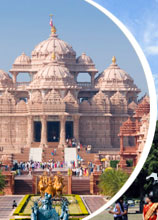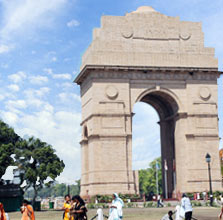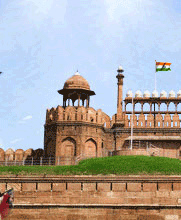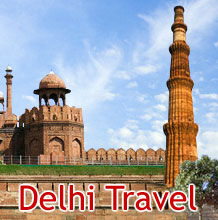 It
was decided in the Delhi Durbar of 1911 that the capital of India would
be shifted from Calcutta to Delhi. Thus was born the city of Delhi,
designed by the great architect Edwin Lutyens, along with Herbert Baker.
It took approximately 20 years and 15 million pounds to build New Delhi.
Built as the Viceral Lodge, Delhi Rashtrapati Bhawan comprises of four
floors and 340 rooms. Now known as the President House of New Delhi, it
is spread over an area of approximately 200,000-sq-feet. It took 18
years to construct this building and on the on the 18th year of its
completion, India became independent.
It
was decided in the Delhi Durbar of 1911 that the capital of India would
be shifted from Calcutta to Delhi. Thus was born the city of Delhi,
designed by the great architect Edwin Lutyens, along with Herbert Baker.
It took approximately 20 years and 15 million pounds to build New Delhi.
Built as the Viceral Lodge, Delhi Rashtrapati Bhawan comprises of four
floors and 340 rooms. Now known as the President House of New Delhi, it
is spread over an area of approximately 200,000-sq-feet. It took 18
years to construct this building and on the on the 18th year of its
completion, India became independent.The Jaipur Column, a gift from the Maharaja of Jaipur, stands at a height of 145 m in the middle of the main court in front of the Rashtrapati Bhavan. Another one of the impressive features of the Delhi Rashtrapati Bhawan comprises of the outstandingly beautiful Mughal Gardens. Then, at the base of the building, is a spacious square, known as the Vijay Chowk. The massive neo-Buddhist copper dome of the President House of New Delhi is splendid and can be seen even from a distance of a kilometer. Underneath this fabulous dome is the circular Durbar Hall, housing the Viceroy's throne, measuring almost 22.8 m in diameter. Before the National Museum was completed, it served as a museum for a number of years. All the official ceremonies such as the swearing in of the Prime Minister, the Cabinet and the Members of Parliament, etc., take place in this hall only. Also, the Arjuna Awards for Excellence are awarded by the President from here itself. On the ground floor of the Rashtrapati Bhavan are a number of state apartments. Then, there is the State Drawing Room, State Ballroom, State Dining Room and a number of other such rooms inside the building. The Delhi Rashtrapati Bhawan consists of 54 bedrooms, along with additional accommodation for guests.










